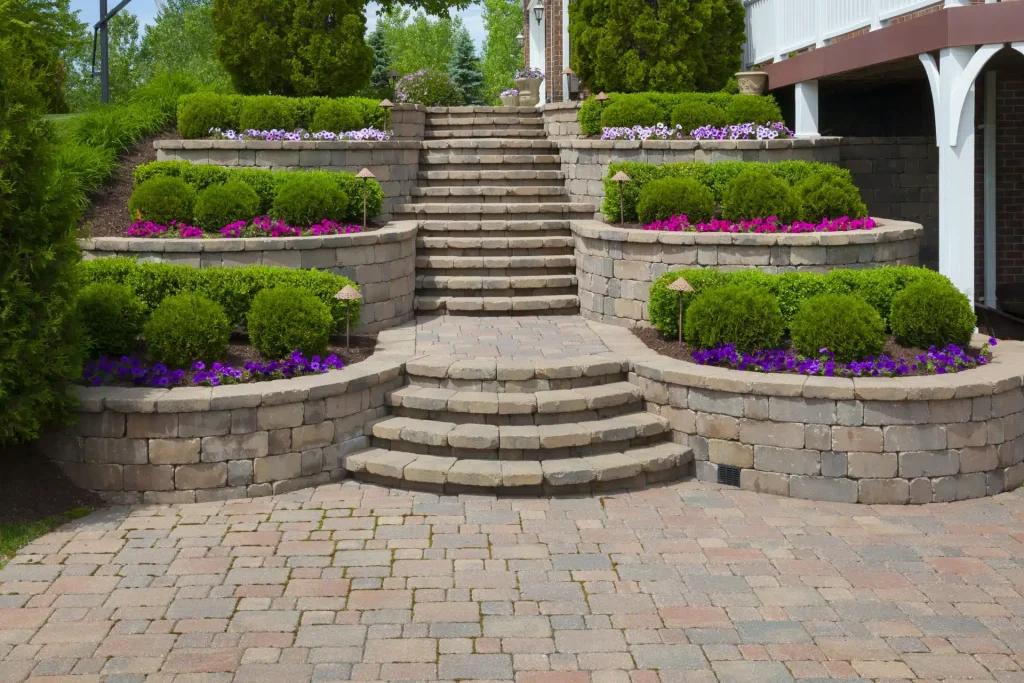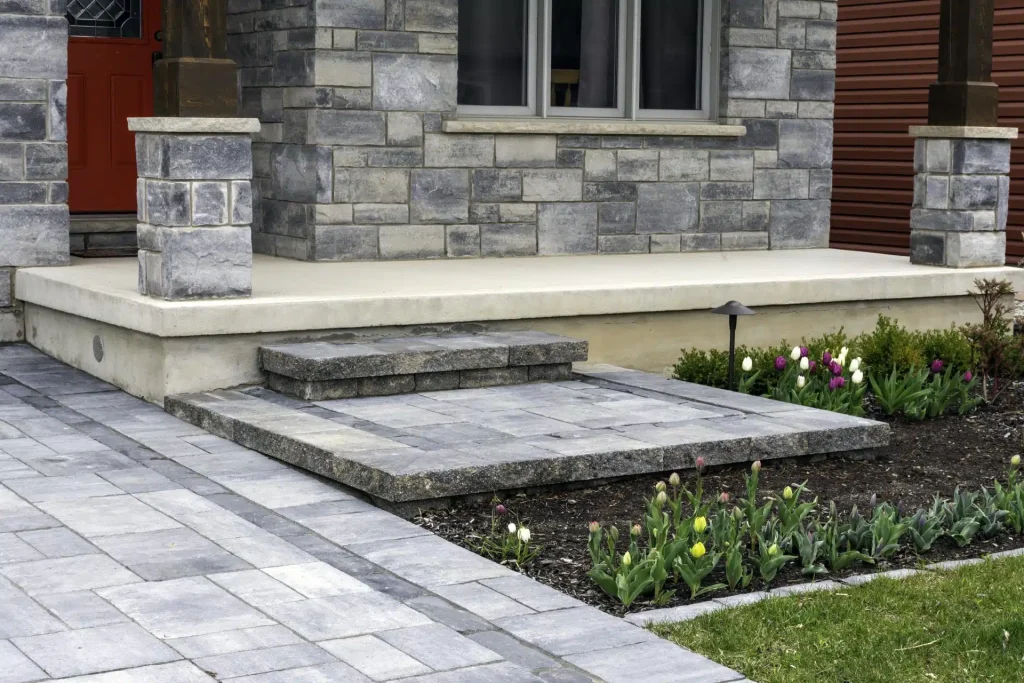Benefits of Hardscaping with Pavers
Aesthetic Appeal
Hardscaping enhances outdoor aesthetics. Pavers come in various styles, colors, and shapes. This variety allows homeowners to create unique designs. A well-planned hardscaping project can transform a plain yard into an inviting space. Quality hardscape products add beauty and character to any landscape.
Pavers can mimic natural stone or brick. They provide a classic look that complements any home style. Using pavers for walkways or patios creates a polished appearance. These features draw attention and enhance curb appeal.
Versatile Spaces
Hardscaping with pavers creates versatile outdoor spaces. Homeowners can design areas for entertaining, dining, or relaxing. Patios made from durable materials serve as gathering spots for family and friends.
Adding a fire pit or seating area makes the space more inviting. People enjoy spending time outdoors when they have comfortable areas to relax. Paved surfaces are easy to maintain and clean, making them practical for everyday use.
Increased Property Value
Investing in hardscape materials boosts property value. Well-designed outdoor spaces attract potential buyers, and a beautiful patio or walkway adds significant appeal to a home.
Statistics show that landscaping improvements can yield high returns on investment. According to the National Association of Realtors, quality hardscape products can increase home value by up to 15%. Buyers often seek homes with appealing outdoor areas.
Durability and Maintenance
Pavers are durable and withstand harsh weather conditions. They resist cracking and fading over time. This longevity makes them a smart choice for hardscaping projects.
Regular maintenance is simple. Homeowners can sweep away debris or wash the surface with water. Sealing pavers every few years helps maintain their appearance. This minimal upkeep saves time and money in the long run.
Environmental Benefits
Hardscaping with permeable pavers offers environmental advantages, too. These materials allow rainwater to drain through, reducing runoff, which helps prevent flooding in yards and streets.
Using eco-friendly hardscape products promotes sustainability. Homeowners can choose materials made from recycled content or sustainable sources, which benefits the environment and enhances the overall landscape design.

Popular Types of Patio Pavers
Interlocking Pavers
Interlocking concrete pavers are a common choice. They offer strength and stability. These pavers fit together tightly, reducing shifting over time and making them suitable for high-traffic areas. Homeowners often appreciate their durability and aesthetic appeal.
Interlocking pavers come in various shapes and colors, allowing for creative designs. For example, one can create patterns or borders that enhance the patio’s look. These options help match the paver design to the overall outdoor decor.
Porcelain Tiles
Porcelain tiles provide another stylish option. They are known for their smooth surface and elegance. These tiles resist stains and moisture, making them ideal for patios exposed to rain. Their low maintenance needs appeal to many homeowners.
These tiles come in a range of colors and textures. Some mimic natural stone or wood, adding a unique touch. Choosing porcelain tiles can elevate the look of any outdoor space.
Permeable Pavers
Due to environmental concerns, permeable options are becoming more popular. These pavers allow water to flow through them, reducing runoff. This helps prevent flooding and supports local ecosystems.
Permeable pavers work well in areas with heavy rainfall. They also reduce the need for drainage systems, saving on installation costs. Many homeowners like this eco-friendly choice.
Concrete Slabs
Concrete slabs are a classic option for patios. They provide a solid foundation and can cover large areas efficiently. Slabs are typically less expensive than other types of pavers.
They can be customized with various finishes, including stamped designs or colored concrete. These choices allow homeowners to achieve a personalized look without breaking the bank.
Climate Considerations
Choosing the correct type of patio paver depends on climate conditions. For example, interlocking pavers hold up well in cold climates where freeze-thaw cycles occur. In contrast, porcelain tiles might be better suited for warmer regions due to their heat resistance.
Understanding local weather patterns helps in selecting durable materials. Some materials may crack under extreme temperatures, while others may fade in intense sunlight.
Design Preferences
Design preferences play a crucial role in selecting patio pavers. Homeowners should consider existing outdoor decor when choosing colors and textures. A smooth patio surface might complement modern furniture, while rustic styles better suit traditional settings.
Mixing different types of pavers can also create unique designs. For instance, combining interlocking pavers with permeable options adds visual interest while maintaining functionality.

Choosing the Right Material
Durability Factors
Different paver materials offer varying levels of durability. Natural stone products like granite and slate are known for their strength. These materials can withstand harsh weather and heavy usage. Concrete pavers also provide good durability. They resist cracking and fading over time. However, they may require sealing to maintain their appearance.
Maintenance is another crucial factor. Natural stone often needs regular sealing to prevent stains. On the other hand, concrete requires less upkeep. Regular cleaning with soap and water usually suffices. Understanding these aspects helps you select the suitable material for your patio.
Environmental Impact
Eco-friendly pavers are gaining popularity. Many homeowners seek sustainable options today. Recycled materials or permeable pavers reduce environmental impact. Permeable pavers allow water to drain through, which minimizes runoff. This feature promotes groundwater recharge and reduces flooding risks.
When sourced locally, natural stone products have a smaller carbon footprint. However, transporting them long distances increases emissions. Concrete can be made from recycled aggregates, making it more sustainable. Assessing the environmental impact of each option is essential for making responsible choices.
Intended Use
Choosing the right material also depends on the intended use. High-traffic areas need durable options that can handle wear and tear. Due to their strength, concrete pavers work well in driveways or walkways.
Decorative features may call for different materials. Natural stone can add elegance to gardens or patios. Its unique textures and colors enhance visual appeal. Before making a decision, consider how you plan to use the space..

